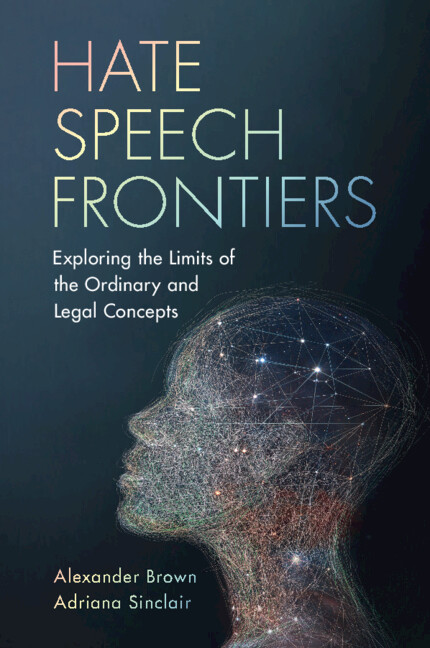
Kathleen Stock identifies as a philosopher of (expert on) sex and gender identity partly on the grounds that she has spent years (let us take her word for it) thinking, researching, and building careful and comprehensive arguments about these issues.
She also says, ‘it’s not hate speech to say males can’t be women’. But this claim is not obviously correct. Nor is it immediately obvious that she is qualified to make it.
I self-identify as an expert on the issue of hate speech: I have spent years thinking, researching, and building careful and comprehensive arguments about this issue.
Based on this research — to be published in Hate Speech Frontiers — I have found that misgendering and gender denialism are similar in some important dimensions to recognised forms of hate speech. I shall say more about that below.
I believe Stock fails to take seriously the possibility that misgendering and gender denialism are forms of hate speech partly because she is not an expert on hate speech but also partly because (and this is more understandable) she wants to assert her right to free speech and her vital interest in not being ‘cancelled’. In her case, being cancelled at her former University and at several public speaking events has been (she has said) not merely confronting but professionally damaging and extremely traumatic and scary at times.
I do not doubt that her real freedom has been diminished by the campaigns against her. Death threats and other forms of intimidatory harassment are contrary to values we all share, or ought to share.
But at the same time I also believe that the social/conceptual question of whether misgendering and gender denialism are forms of hate speech can and should be separated from the legal question of the limits of free expression. Something can be hate speech but also deserving of legal protection, just as something else can be hate speech and legally prohibitable.
I have extensively researched the idea of hate speech, in both its ordinary and legal senses, and have concluded that misgendering and gender denialism are importantly similar to hate speech, and on the balance of probabilities are, in certain instances and contexts, forms of hate speech, at least under the ordinary concept.
This does not necessarily mean, however, that I believe misgendering and gender denialism should be criminalised, all things considered.
Stock is right to say she shouldn’t be criminalised—nor face intimidatory harassment—but arguably wrong to dismiss out of hand the idea that she is a hate speaker.
But in what ways are misgendering and gender denialism similar to paradigmatic examples of hate speech? Take three illustrations. First, miscategorising a trans woman as just a man is similar in style to miscategorising a bisexual man as just a closet homosexual. Second, saying that trans men are simply confused and troubled women is similar as an act of degradation and belittlement to saying that lesbian women are simply confused and troubled straight women. Third, denying that trans people are the gender with which they identify can have similarly profound consequences as denying that Igbo Jews are Jews.
However, by the same token, calling people slurs like ‘TERF’ can also be similar to hate speech (an insulting stereotype often born of prejudice and misrecognition), and could be, in certain instances and contexts, itself a form of hate speech.
Likewise, if someone identifies as simply ‘a woman’ and explicitly requests not to be referred to as ‘a cisgender woman’, then refusing to recognise that identity may also be similar to hate speech.
All sides should exercise an ethic of responsibility and reflect further on whether they are – wittingly or unwittingly – participants in hate spirals. Many people experience the online world as the Internet of hate, and this diminishes us all.
Nevertheless, it is not enough to stand behind the excuse that something one has posted online is not illegal in a certain jurisdiction. Sometimes legal speech is still hate speech.
For example, whilst neither Facebook’s community standard on hate speech nor Twitter’s newly revised hateful conduct policy disallow misgendering as a form of hate speech, other social media platforms take a different view. TikTok’s community guideline on hate speech and hateful behaviours prohibits ‘Intentionally targeting people who are transgender or gender non-conforming by referring to them using their former name or gender rather than their current name or expressed gender (deadnaming or misgendering).’
If something looks and feels a lot like hate speech, then it probably is, at least in the ordinary sense. So, even if something is lawful, that doesn’t make it right to say it.

Hate Speech Frontiers by Alexander Brown, Adriana Sinclair
Latest Comments
Have your say!